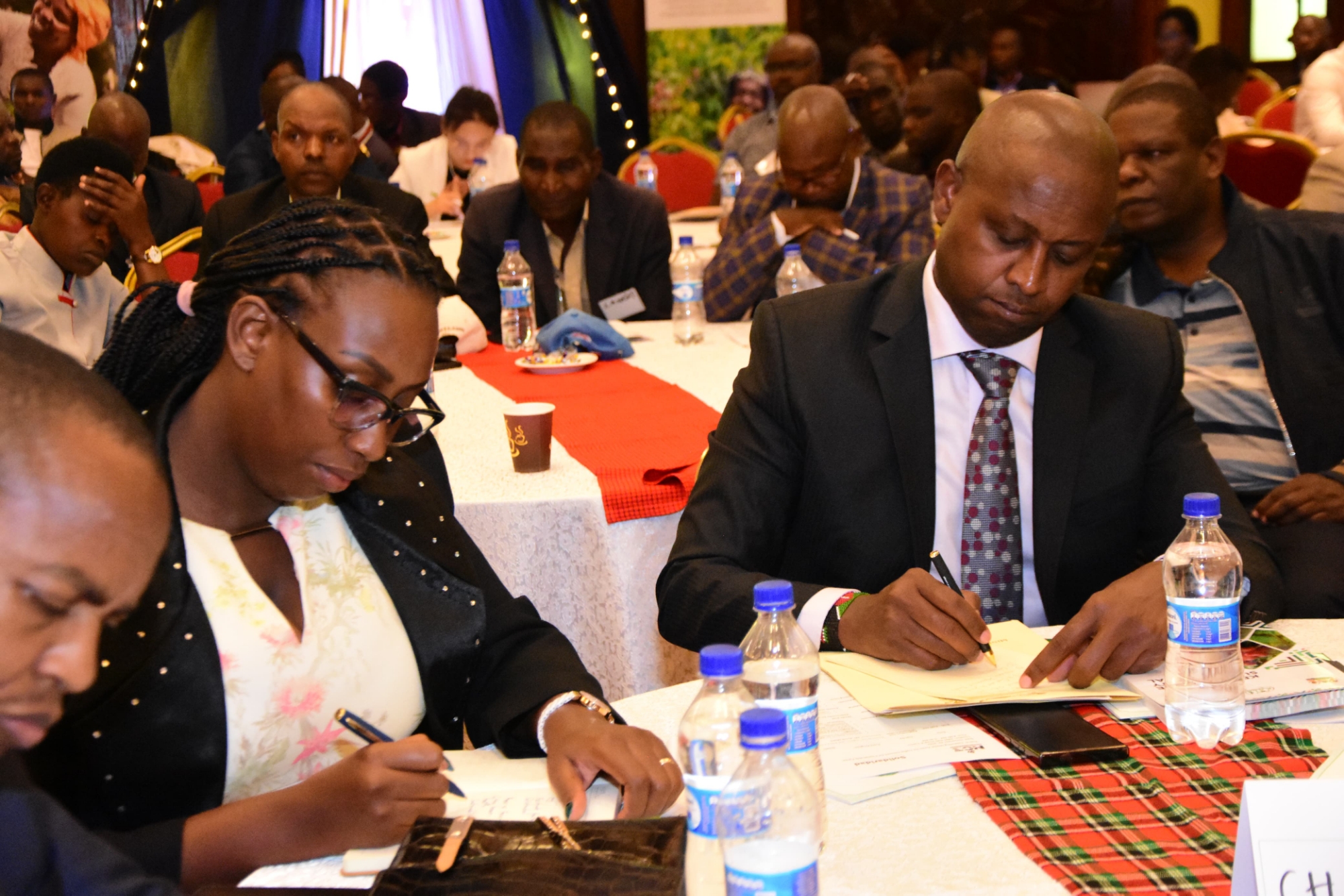Principal Secretary in the Ministry of Co-operatives and Micro, Small & Medium Enterprises (MSMEs) Development, State Department for Cooperatives, Patrick Kilemi (R) during the Kenyan coffee stakeholder meeting held at Safari park Hotel, Nairobi on November 22, 2024.
Nairobi recently hosted an important forum to discuss the future of Kenya’s coffee industry in the face of changing global market conditions. Organized by the Nairobi Coffee Exchange, Solidaridad and Fairtrade Africa, the event brought together key stakeholders including cooperatives, estate owners, millers, brokers, buyers and government representatives. Under the theme ‘Supporting Market Access for Coffee Farmers for a Sustainable Future’, the forum emphasized the need for collaboration to address emerging challenges and opportunities.
Nairobi Coffee Exchange, CEO, Lisper Ndung’u, printed out the central role of coffee in Kenya’s economy, describing it as a vital source of livelihood for millions of people. She expressed concern about the potential impact of the European Union Deforestation Regulation (EUDR), a new set of environmental guidelines that could disrupt production and exports. “While these regulations are critical for environmental sustainability, they pose significant hurdles for our coffee sector,” she noted.
To address these challenges, Ms Ndung’u outlined her organisation’s efforts to empower stakeholders to navigate the evolving regulatory landscape. “We are committed to providing our farmers and exporters with the tools they need to remain competitive and maintain access to international markets,” she said.
The Principal Secretary for Cooperative Development, Patrick Kilemi, also urged farmers to increase coffee production to meet growing local and global demand. “We encourage farmers to adopt modern farming practices that can improve both yield and quality,” he said. He reiterated the government’s commitment to revitalising the coffee sector by expanding market access and removing trade barriers.
“We aim to position Kenya as a global coffee leader by addressing challenges such as price instability, lack of technical support and unfair trade practices,” the PS stressed. He also called on the Kenya Coffee Corporation to provide farmers with timely information, technical assistance and strategies for profitability.

The event also featured speciality coffees from across the country, showcasing the work of smallholder farmers trained in sustainable farming techniques. These efforts underscore Kenya’s commitment to producing high-quality, environmentally friendly coffee that meets the demands of global markets.
Amid challenges such as market volatility and climate change, the forum served as a platform for stakeholders to reaffirm their commitment to sustainable practices, fair trade and the long-term growth of Kenya’s coffee industry.










